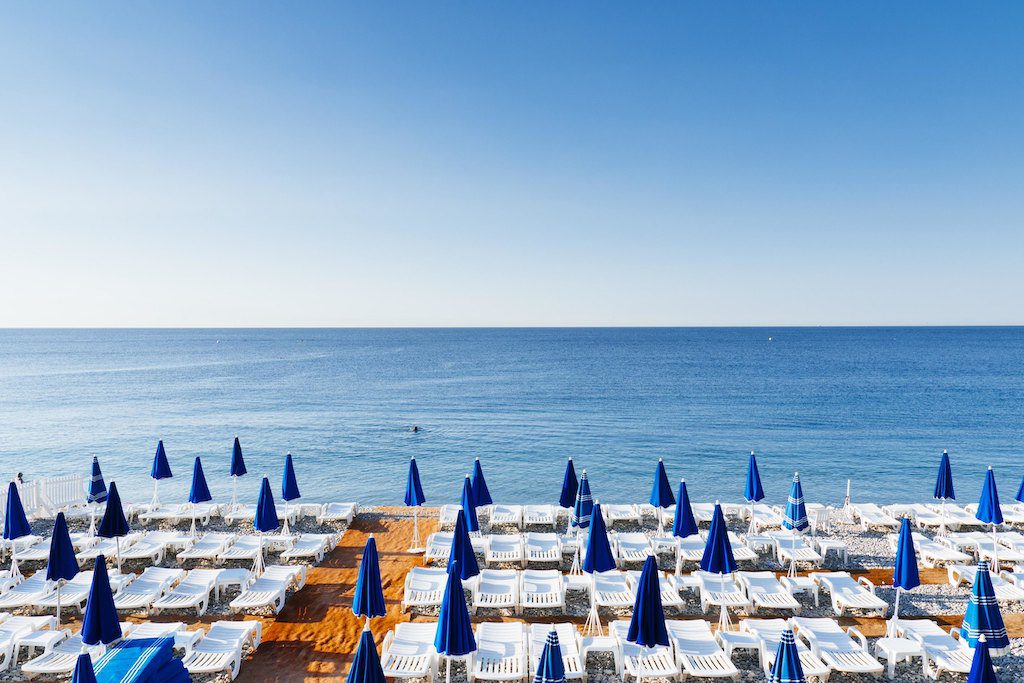Skift Take
Europe opened its internal borders six weeks ago. Bookings are up, but there's a big difference between booking a trip and actually taking one.
It was just under six weeks ago that Europe opened its internal borders in the hopes of salvaging a summer season of travel. So it’s worth asking now how that season is looking.
The prospect of traveling in Europe versus the U.S. at this time is quite different. Europe has largely, if not wholly, beat the virus down. While no form of travel is risk-free during a pandemic, the lower level of virus circulation in Europe makes summer travel a different beast than in the U.S.
However, Europe’s progress remains tenuous.
It’s also worth noting that, in Europe, the July and August vacation season is seen as something of a human right. As journalist Yasmeen Serhan wrote in The Atlantic earlier this summer, unlike the U.S. “Europe savors the summer: a sacred time in July and August when vacations are planned, shops are closed, and the continent agrees to go on a collective pause.”
Given the complexities and uncertainties associated with travel at the moment, however, it’s been anyone’s guess whether or not Europeans would in fact take to planes, trains, and automobiles in order to claim this right of theirs. While no one is expecting 2020s summer to reach 2019 levels, there are some indicators that Europeans are hitting the road.
The opening in June certainly resulted in an increase in bookings to holiday hotspots, said Olivier Ponti, vice president of insights at ForwardKeys. “When Spain, Portugal and Greece announced they would reopen for travel, there was an immediate pick up in Intra-European flight bookings to those destinations,” Ponti told Skift. “In the five weeks following the announcements, the combined booking levels for the three countries rose to 65 percent of last year’s bookings during the equivalent period. By comparison, all intra-European bookings have recovered to 45 percent of last year’s levels over that period.”
ForwardKeys data also showed that during the week of July 13, there were more new bookings than cancellations to the European Union from Europe for the first time since the pandemic began.
In a survey conducted by Eurail, roughly a third of respondents said they intended to stick to their holiday plans for this year. Dutch citizens were the most steadfast, with 41 percent keeping their plans, followed by German (31 percent) and British citizens (30 percent). The survey also noted that 37 percent of respondents said that flexible cancellations and refund policies are most important to their decision making on taking trips, above low cost or promotional fares.
In some ways, Europe is in the best position to see some form of recovery. As the European Travel Commission noted in its second quarter report, the “likelihood of a stable and quick recovery of travel demand is likely to be greater for destinations that rely more heavily on domestic and short-haul travelers.” In that regard, Europe is well-placed. In 2019, the average share of international arrivals that were from short-haul markets in Europe was 77 percent. Meanwhile, the share of domestic travelers was 44.5 percent across Europe, based on data from hotel stays.
However while bookings are up overall compared to the depths of the lockdown, that doesn’t necessarily mean trips taken — especially in the era of hyper-flexible cancellations. Tim Fairhurst, secretary general of the European Tourism Association, told Skift that situations like Barcelona going back into some form of lockdown may remain a huge thorn in the summer season’s side.
“The appetite is there, and bookings are picking up, but fear of finding yourself on the wrong side of a newly closed border is proving to be a factor,” Fairhurst said. “As are situations such as Barcelona’s, where the regional government has reintroduced recommended (not mandated) restrictions, which don’t obviously affect visitors. So we’ve got the novel prospect of risk of resentment for tourism returning at precisely the time when destinations want to welcome its return.”
The Daily Newsletter
Our daily coverage of the global travel industry. Written by editors and analysts from across Skift’s brands.
Have a confidential tip for Skift? Get in touch
Photo credit: An empty beach on the Cote d'Azur. Matej Duzel / Flickr
